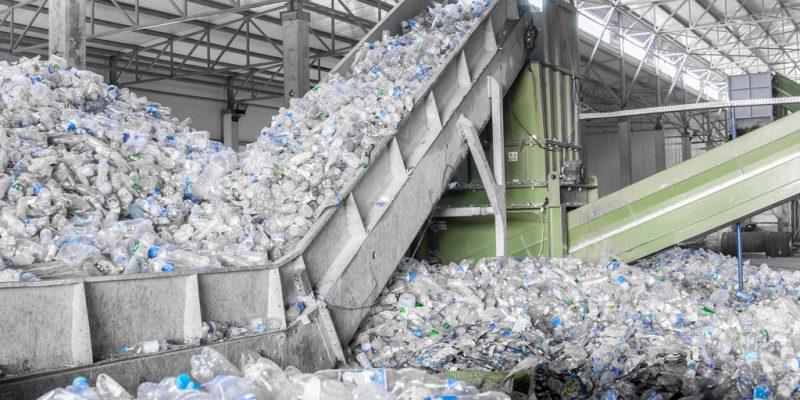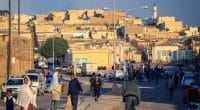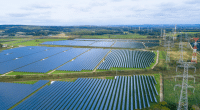A waste sorting and a processing plant to transform plastic waste into bricks will soon see the light of day in Sèmè-Kpodji, a town in the south-east of Benin. The site, which will house the plant, was recently made available to the project managers by the town hall in the Ouémé department.
The project to build a brick manufacturing unit from plastic waste in Benin is gradually taking shape. The location of the site, which is to house the debris sorting and processing centre, has recently been unveiled. It is located in Agbalilamè Houègo, a village in the commune of Sèmè-Kpodji, in the Agblangandan district of south-eastern Benin.
The site of the brick-making unit was made available by the town hall of Sèmè-Kpodji, in the department of Ouémé. The land covers an area of 1000 m².
The future plant for sorting and processing plastic waste into bricks will be built by the Sèmè City Development Agency in Benin, with support from the United Nations Children’s Fund (UNICEF). It will reduce the overflow of plastic waste on the country’s streets, produce cheaper, lighter and more environmentally friendly construction materials, etc. After Côte d’Ivoire, Benin will be the second country in Africa to host such a facility.
The role of the first brick manufacturing unit in Côte d’Ivoire
Construction work on Africa’s first modular plastic brick plant, based in Côte d’Ivoire, started in 2019. It was launched by UNICEF, in partnership with the Colombian social enterprise Conceptos Plasticos. “This plant will be at the forefront of intelligent and scalable solutions to address some of the key educational challenges facing children and communities in Africa,” said Henrietta Fore, Executive Director of UNICEF.
To date, the modular plastic bricks from this plant have already been used to build several classrooms. “One of the main challenges facing Ivorian schoolchildren is the lack of classrooms. Thanks to this project, in some areas, kindergarten children from poor neighbourhoods could attend classrooms with less than 100 other schoolchildren. Children who never thought there would be a place for them in school will also be able to learn and grow in a new and clean classroom,” said Aboubacar Kampo, UNICEF’s representative in Côte d’Ivoire.
Characteristics of recycled plastic bricks
The bricks are made entirely of plastic and are fire-resistant. They are 40% cheaper and 20% lighter than clay bricks. Recycled plastic bricks last hundreds of years longer than conventional building materials. They are also waterproof, well insulated and designed to withstand high winds.
According to UNICEF, Côte d’Ivoire needs 15,000 classrooms to meet the needs of children without learning opportunities. The centre for manufacturing bricks from plastic waste is expected to build 500 classrooms for more than 25,000 children over the next two years, with the possibility of increasing production beyond that. “Once fully operational, the plant will recycle 9,600 tonnes of plastic waste per year and provide a source of income for women living in poverty in a formalized recycling market,” says Henrietta Fore, UNICEF’s Executive Director.
The recycled plastic is collected from polluted areas in and around Abidjan, the capital of Côte d’Ivoire. More than 280 tonnes of plastic waste are produced every day in the capital and barely 5% is recycled. The rest is dumped in the landfills of low-income communities.
Inès Magoum







